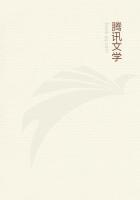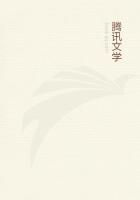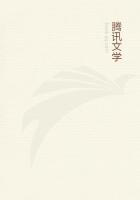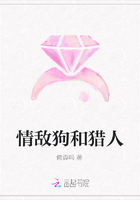"Madame, I understand you," he said, laughing. "I ought, therefore, to be doubly thankful that Monsieur le marquis met me; he affords me an opportunity to offer you excuses which might be full of danger were you not kindness itself."The marquise looked at the young man with an air of some surprise, but she answered with dignity:--"Monsieur, silence on your part will be the best excuse. As for me, Ipromise you entire forgetfulness, and the pardon which you scarcely deserve.""Madame," said Rastignac, hastily, "pardon is not needed where there was no offence. The letter," he added, in a low voice, "which you received, and which you must have thought extremely unbecoming, was not intended for you."The marquise could not help smiling, though she wished to seem offended.
"Why deceive?" she said, with a disdainful air, although the tones of her voice were gentle. "Now that I have duly scolded you, I am willing to laugh at a subterfuge which is not without cleverness. I know many women who would be taken in by it: 'Heavens! how he loves me!' they would say."Here the marquise gave a forced laugh, and then added, in a tone of indulgence:--"If we desire to continue friends let there be no more MISTAKES, of which it is impossible that I should be the dupe.""Upon my honor, madame, you are so--far more than you think," replied Eugene.
"What are you talking about?" asked Monsieur de Listomere, who, for the last minute, had been listening to the conversation, the meaning of which he could not penetrate.
"Oh! nothing that would interest you," replied his wife.
Monsieur de Listomere tranquilly returned to the reading of his paper, and presently said:--"Ah! Madame de Mortsauf is dead; your poor brother has, no doubt, gone to Clochegourde.""Are you aware, monsieur," resumed the marquise, turning to Eugene, "that what you have just said is a great impertinence?""If I did not know the strictness of your principles," he answered, *****ly, "I should think that you wished either to give me ideas which I deny myself, or else to tear a secret from me. But perhaps you are only amusing yourself with me."The marquise smiled. That smile annoyed Eugene.
"Madame," he said, "can you still believe in an offence I have not committed? I earnestly hope that chance may not enable you to discover the name of the person who ought to have read that letter.""What! can it be STILL Madame de Nucingen?" cried Madame de Listomere, more eager to penetrate that secret than to revenge herself for the impertinence of the young man's speeches.
Eugene colored. A man must be more than twenty-five years of age not to blush at being taxed with a fidelity that women laugh at--in order, perhaps, not to show that they envy it. However, he replied with tolerable self-possession:--"Why not, madame?"
Such are the blunders we all make at twenty-five.
This speech caused a violent commotion in Madame de Listomere's bosom;but Rastignac did not yet know how to analyze a woman's face by a rapid or sidelong glance. The lips of the marquise paled, but that was all. She rang the bell for wood, and so constrained Rastignac to rise and take his leave.
"If that be so," said the marquise, stopping Eugene with a cold and rigid manner, "you will find it difficult to explain, monsieur, why your pen should, by accident, write my name. A name, written on a letter, is not a friend's opera-hat, which you might have taken, carelessly, on leaving a ball."Eugene, discomfited, looked at the marquise with an air that was both stupid and conceited. He felt that he was becoming ridiculous; and after stammering a few juvenile phrases he left the room.
A few days later the marquise acquired undeniable proofs that Eugene had told the truth. For the last fortnight she has not been seen in society.
The marquis tells all those who ask him the reason of this seclusion:--"My wife has an inflammation of the stomach."But I, her physician, who am now attending her, know it is really nothing more than a slight nervous attack, which she is ****** the most of in order to stay quietly at home.















